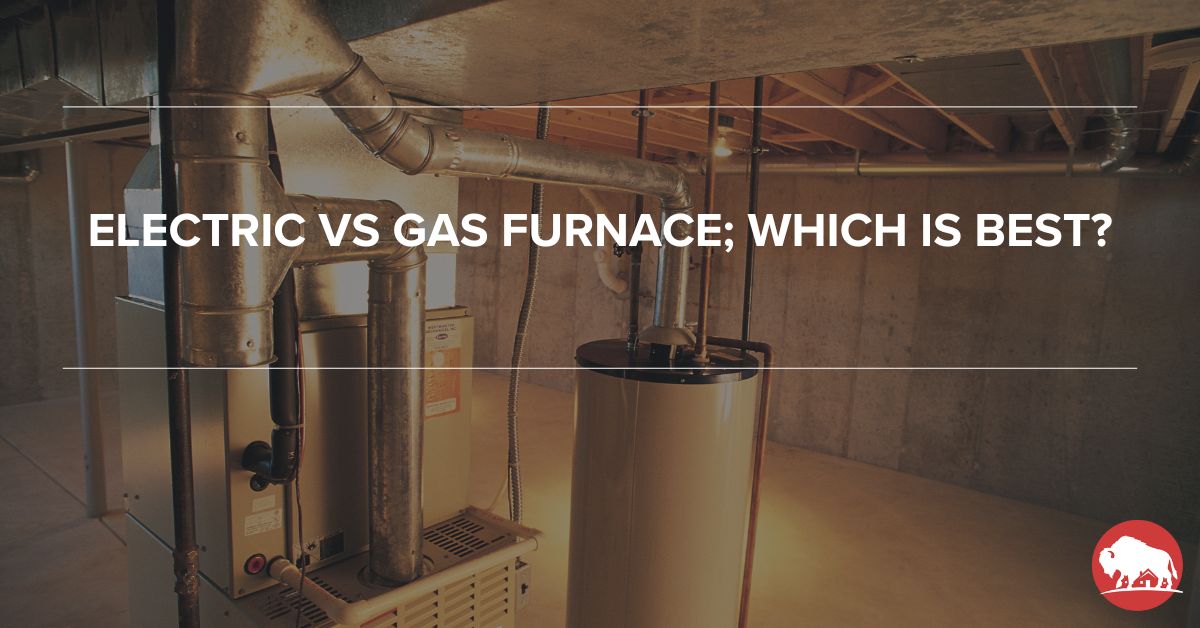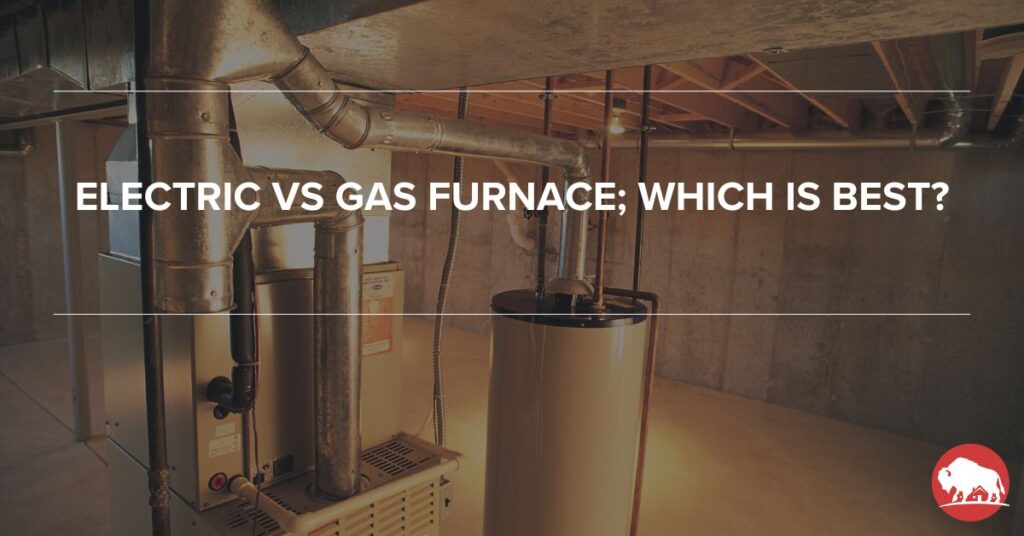Choosing between an electric vs gas furnace isn’t just about picking the first option you see—it’s a decision that can impact your comfort, energy bills, and even the environment for years to come. In fact, heating accounts for nearly half of the energy use in a typical U.S. home! That means your furnace choice is not only about staying warm but also about optimizing your long-term expenses.
So, how do you decide which is better for your home? If you’re focused on safety, energy efficiency, or even upfront costs, each option has its clear advantages and disadvantages. But not every home or homeowner has the same needs. In this guide, we’ll dive into what really matters when it comes to electric vs. gas furnaces—so you can make the right call for your home and wallet.
How an Electric vs Gas Furnace Work
Electric Furnaces: Overview
Electric furnaces work by using electrical heating elements (usually coils) to heat the air. Once the air is heated, a blower fan pushes it through your ducts and into the rooms of your house. It’s a pretty simple system that doesn’t require any fuel combustion, making it a safe and straightforward option.
Gas Furnaces: Overview
Gas furnaces, on the other hand, rely on burning natural gas (or sometimes propane) to generate heat. The gas burns inside the furnace, heating up air that’s then circulated throughout your home. Because natural gas burns quickly and efficiently, gas furnaces heat your home faster and generally use less energy to do so.
Cost Comparison: Electric vs. Gas Furnace
Upfront Installation Costs
If you’re on a budget, you might lean towards an electric furnace because they tend to have lower upfront installation costs. You won’t need a gas line or extra ventilation, so installation is usually quicker and cheaper. However, if you already have a gas line in your home, the installation costs for a gas furnace could be comparable.
Operating Costs Over Time
Here’s where gas furnaces really pull ahead. While electric furnaces might be cheaper to install, they tend to cost more to operate, especially in areas where electricity rates are high. Gas is often much cheaper than electricity, so even though gas furnaces can be pricier up front, they typically save you more on your monthly energy bills. In cold climates, those savings can really add up!
Heating Efficiency and Performance
Faster Heating: Gas Furnace Advantage
If you live in a colder climate, a gas furnace can be a game changer. Gas furnaces heat your home faster than electric ones, making it easier to get warm and cozy when temperatures drop. Electric furnaces tend to heat up more slowly, which can leave you waiting a bit longer for your house to reach a comfortable temperature. Remember to get the correct size furnace for your home for maximum efficiency.
Energy Efficiency Ratings
When it comes to energy efficiency, both types of furnaces can be great, depending on the model you choose. Gas furnaces are often very efficient, with some models boasting AFUE (Annual Fuel Utilization Efficiency) ratings of over 99%, meaning they convert nearly all of the fuel into heat. Electric furnaces are also energy-efficient, but since electricity is usually more expensive, the operating costs can still be higher even with a highly efficient model.
Safety Considerations for Electric vs Gas Furnace
Electric Furnaces: Safer Option
One of the biggest perks of an electric furnace is safety. Because they don’t burn fuel, there’s no risk of carbon monoxide poisoning or gas leaks. You also don’t have to worry about combustion, which makes electric furnaces a great option if you’re concerned about indoor air quality or safety issues.
Gas Furnaces: Safety Concerns and Maintenance
Gas furnaces, while generally safe, do require regular maintenance to ensure everything is working correctly. Since they burn natural gas, there’s always a small risk of carbon monoxide leaks. That’s why it’s important to schedule annual inspections and make sure your furnace’s ventilation system is working properly. When maintained well, gas furnaces are safe, but they do require a little extra attention.
Electric vs Gas Furnaces Environmental Impact
Electric Furnaces and Clean Energy
If you’re trying to be as environmentally conscious as possible, an electric furnace might be the way to go—depending on where your electricity comes from. If your home is powered by renewable energy like wind or solar, an electric furnace can be an eco-friendly option. However, if your electricity is mostly generated from fossil fuels, the environmental impact could be just as high (or even higher) than a gas furnace.
Gas Furnaces and Carbon Emissions
While gas furnaces are more energy-efficient in terms of heat production, burning natural gas does release carbon dioxide, which contributes to climate change. That being said, natural gas burns cleaner than coal or oil, so it’s still a relatively eco-friendly fossil fuel. If you’re concerned about your carbon footprint, though, an electric furnace powered by renewable energy might be a better option.
Lifespan and Maintenance
Electric Furnace Longevity
Electric furnaces generally last longer than gas furnaces—sometimes up to 20 to 30 years. Because they have fewer moving parts and don’t deal with combustion, there’s less wear and tear over time. However, you’ll still want to schedule annual maintenance to keep everything running smoothly.
Gas Furnace Maintenance Needs
Gas furnaces, while durable, typically have a lifespan of about 15 to 20 years. Regular maintenance is key to keeping them safe and efficient. Annual inspections, cleaning, and the occasional repair are necessary to prevent issues like gas leaks or decreased efficiency. With proper care, gas furnaces can give you many years of reliable heat.
Which is Best for Your Home? Electric vs Gas Furnace
Factors to Consider
Choosing between an electric furnace and a gas furnace comes down to your specific situation. Do you already have a gas line? Do you live in a colder climate where fast, efficient heating is a priority? Are you looking to lower your monthly energy bills? If so, a gas furnace might be the better option.
On the other hand, if you’re looking for a safer, easier-to-install system that doesn’t come with the risks of combustion, or if your home runs on renewable electricity, an electric furnace could be your best bet.
Consulting an HVAC Professional
Before you make a final decision, it’s a good idea to consult with an HVAC professional. They can assess your home’s heating needs, explain any incentives for energy-efficient models, and help you figure out which furnace will save you the most money while keeping you warm all winter long.
Electric vs Gas Furnace
In the debate between electric furnaces and gas furnaces, there’s no one-size-fits-all answer. Both options come with distinct advantages. If you prioritize lower upfront costs, easier installation, and safety, an electric furnace might be the way to go. However, if you’re seeking faster heating, lower long-term energy bills, and live in a colder climate, a gas furnace could serve you better.
Ultimately, your choice depends on your specific needs, budget, and energy preferences. By weighing the pros and cons of each, you’ll be equipped to make the right decision for your home. Remember, if you’re still unsure, consulting with an HVAC professional can help tailor the best option for your situation.






